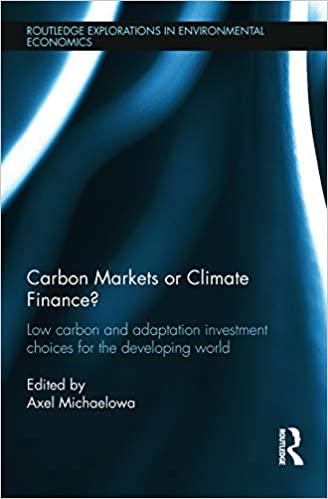
10. When Alfred Nobel died, he left the majority of his estate to fund five prizes, each to be awarded annually in perpetuity starting one year after he died (the sixth one, in economics, was added later). a. If he wanted the cash award of each of the five prizes to be $45,000 and his estate could earn 7% per year, how much would he need to fund his prizes? b. If he wanted the value of each prize to grow by 2% per year (perhaps to keep up with inflation), how much would he need to leave? Assume that the first amount was still $45,000. c. His heirs were surprised by his will and fought it. If they had been able to keep the amount of money you calculated in (b), and had invested it at 7% per year, how much would they have in 2014, 118 years after his death? a. If he wanted the cash award of each of the five prizes to be $45,000 and his estate could earn 7% per year, how much would he need to fund his prizes? To fund the five prizes, he would need $. (Round to the nearest dollar.) b. If he wanted the value of each prize to grow by 2% per year (perhaps to keep up with inflation), how much would he need to leave? Assume that the first amount was still $45,000. He would need to leave $ (Round to the nearest dollar.) c. His heirs were surprised by his will and fought it. If they had been able to keep the amount of money you calculated in (b), and had invested it at 7% per year, how much would they have in 2014, 118 years after his death? In 2014, 118 years after his death, his heirs would have $ million. (Round to the nearest million dollar.) 11. You have an investment account that started with $4,00010 years ago and which now has grown to $11,000. a. What annual rate of return have you earned (you have made no additional contributions to the account)? b. If the savings bond earns 17% per year from now on, what will the account's value be 10 years from now? a. What annual rate of return have you earned (you have made no additional contributions to the account)? Your annual rate of return is \%. (Round to two decimal places.) b. If the savings bond earns 17% per year from now on, what will the account's value be 10 years from now? The account's value in ten years will be \$ (Round to the nearest cent.) 12. You are thinking of purchasing a house. The house costs $200,000. You have $29,000 in cash that you can use as a down payment on the house, but you need to borrow the rest of the purchase price. The bank is offering a 30 -year mortgage that requires annual payments and has an interest rate of 7% per year. What will be your annual payment if you sign this mortgage? The annual payment is $ . (Round to the nearest dollar.) 13. You are saving for retirement. To live comfortably, you decide you will need to save $3 million by the time you are 65 . Today is your 22 nd birthday, and you decide, starting today and continuing on every birthday up to and including your 65 th birthday, that you will put the same amount into a savings account. If the interest rate is 3%, how much must you set aside each year to make sure that you will have $3 million in the account on your 65 th birthday? The amount to deposit each year is $ - (Round to the nearest dollar.) 14. Suppose you currently have $5,300 in your savings account, and your bank pays interest at a rate of 0.49% per month. If you make no further deposits or withdrawals, how much will you have in the account in 5 years? In 5 years' time, you will have $ in the account. (Round to the nearest cent.)







